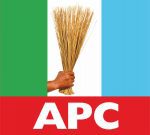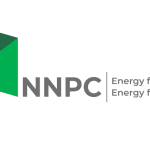OBSERVATION: Hope 93 And Its Renewal

- BY ADEMOLA YAYA
“ON the March Again (2ice); Looking for Mr. President; On the March Again; MKO is Our Man o.” That was the popular jingle of late Chief Moshood Kasimawo Olawale Abiola for June 12, 1993 presidential election campaign under the platform of the Social Democratic Party (SDP), organised by Nigeria military junta headed by General Ibrahim Badamosi Babangida (IBB), as a transition programme from military dictatorship to civilian rule.
IBB and his gang had prosecuted a military coup in 1995 to dislodge General Muhammadu Buhari/Tunde Idiagbon military regime that truncated Second Republic Civilian Rule in December, 1984. IBB was nicknamed “Maradona” and “Evil Genius” for his numerous tricks and pranks on the intelligence of Nigerians, unleashing IMF and World Bank Structural Adjusted Programmes and other neo-liberal policies, initiating an elongated piecemeal transition programme, and perpetrating various unprintable acts while putting on radiant smiling face.
After eight years of holding Nigeria by the jugular, the final stage of his long transition programme in 1993 came as a great relief. The June 12, 1993 presidential election between the two registered political parties – Social Democratic Party (SDP) and National Republican Convention (NRC), was based on only voters’ register with Option A4, an innovative voting system aimed at increasing transparency and reducing fraud – you simply get accredited then queue behind the poster of your preferred candidate, and the counting is done, announced and recorded.
READ: June 12: Osun Students Join Pro-Democracy Procession, Demand Good Governance
At that time, there were no technological innovations like Temporary or Permanent Voters’ Cards, BVAS, etc to aid electoral processes and guide elections. Nigerians were tired of continued military rule and desperately yearning for civilian government with the hope of bettering their living conditions. Hence, they comported themselves from East to West, North to South, and everywhere, making the election peaceful, free, fair and credible attested by Local and International Observers.
In that presidential election, Chief MKO Abiola of the SDP defeated Bashir Othman Tofa of NRC. MKO campaign slogan was “Hope 93.” Because of his humble background and transformation to becoming a very wealthy man with his philanthropist tendency across the country, people had illusion that MKO would transform Nigeria to a better country which would positively impact their lives. They, therefore, thronged out in their millions to vote him. Despite the fact that Gen. Babangida annulled the election, the Chairman of the National Electoral Commission of Nigeria, Professor Humphrey Nwosu, had released the election results which showed Chief MKO as the clear winner, even defeating Tofa in his polling unit in Kano State.
There was political turmoil. Nigerians responded with massive protests everywhere, calling for de-annulment of the election. The military rolled out tanks, army were stationed in strategic places to violently halt any protest or gathering, blaring siren up and down. But people were not scared; protests continued with various Aluta songs, “How many people soja go kill o (2ice)?; eh, them go kill us tire (2ice); how many people soja go kill?”. These protests shook the military to its foundation and at a stage, General Babangida had to ‘step aside.’ But before he exited power, he hurriedly instituted an Interim National Government headed by Chief Earnest Shonekan in August 26, 1993. Shonekan was later overthrown in a palace coup by General Sani Abacha in November 17, 1993.
Between 1993 and 1998 that General Abacha ruled, there were killings, like the execution of Ken Saro-Wiwa and other Ogoni activists, human rights abuses and suppression of political opposition, looting of public funds and mismanagement of economy and numerous attempts to perpetuate himself in power. At the end, anyway, Abacha mysteriously and suddenly died on power on June 8, 1998 at the age of 54 with some sources tracing it to a heart attack and others claiming he was poisoned.
It is not important to report wild jubilations that greeted his death by Nigerians across the land; what is important was that the military dictator was succeeded by General Abdulsami Abubakar who eventually genuinely initiated and supervised transition to civilian rule in 1999. It is instructive to state that Chief MKO Abiola who had been arrested and incarcerated by the military also mysteriously died on July 7, 1998, exactly a month of Gen. Abacha death. It all looked like conspiracy to clear the road for a new political chapter for Nigerian civil rule.
As compensation to South-West where MKO hailed, the region was allowed, by the ruling elites, to produce the next President but General Olusegun Obasanjo government shattered the dream and hope of a better life for the people. His successor, President Shehu Musa Yar’Adua who was poised to deliver better living condition based on his background and disposition was short-lived; his successor, President Goodluck Jonathan, was a disaster, proclaiming, “stealing is not corruption!” And General Buhari was brought and packaged to Nigerians as the needed messiah that would lead us out of the “wilderness” by former Governor of Lagos, Senator Bola Ahmed Tinubu with his followers, who was the Leader of All Progressive Congress (APC), an amalgamation of politicians of different shades and characters, in 2014. Poor Nigerians voted Buhari as a better alternative to the supposed 16 terrible years of the PDP. By the end of his tenure, the rejected PDP and its agonising era seemed to be better comparatively and Nigerians were in a dilemma of choice in 2023 general elections between Satan and Lucifer – APC and PDP.
But the PDP split its forces as one of its bigwigs contested on the platform of another party – Labour Party. This made the election to be very keen but with a low turnout despite huge resources expended to motivate voters. But one thing was very clear, APC Presidential candidate, Bola Tinubu, was a Senator in 1992 during IBB transition programme that was to concludse by June 12 Presidential election which was annulled and truncated transition. Despite overtures to him by the military, he stood firmly for de-annulment of June 12 and partook first locally but eventually internationally, funding and supporting every effort to restore democracy. In addition, he had ruled Lagos State as a Governor between 1999 and 2007, which was adjudged as remarkable viz-a-viz democratic dividends and the quality of managers he surrounded himself with. And coming with a slogan, “Renewed Hope Agenda”, there was a huge expectation that he would make up for what MKO could not live to do – be a good President by turning things around for better as he had a record of choosing right people for right positions. Indeed, he eventually emerged winner of the 2023 presidential election.
Unfortunately, from his inauguration day, he had begun unleashing IMF/World Bank neo-liberal policies of oil subsidy removal, floating/devaluation of Naira, increase of electricity tariffs, commercialization of education, among others which have led to prohibitive cost of transport, living; making the prices of goods, especially, foods and other consumables skyrocketing. Insecurity has continued, which has prevented farmers from working on their farmland and those who surmounted courage to do, herdsman with their cows ravaged their produce and killed those unlucky to escape. This has led to unprecedented food inflation. There is hunger and starvation across the land and people have been stretched to the limit of their elasticity.
A mass anger and protest are looming as people have seen left and right of successive politicians and regimes who have failed them and there is no policy in the pipeline that suggests that things will improve after one year of poverty and misery. It is in the best interest of the Nigerian ruling elite to quickly reverse their anti-poor policies and inject the ones that will guarantee security and make people productive. Unless President Tinubu genuinely renews the hope he promised the people by reverting to old fuel price, tackle insecurity by arresting and prosecuting their sponsors, which his government knows, and then reset the system of governance for optimal delivery of the greatest good to the greatest majority among others, democracy is clearly and presently endangered.
The opinions expressed in this publication are those of the author. They do not represent the opinions or views of OSUN DEFENDER.









